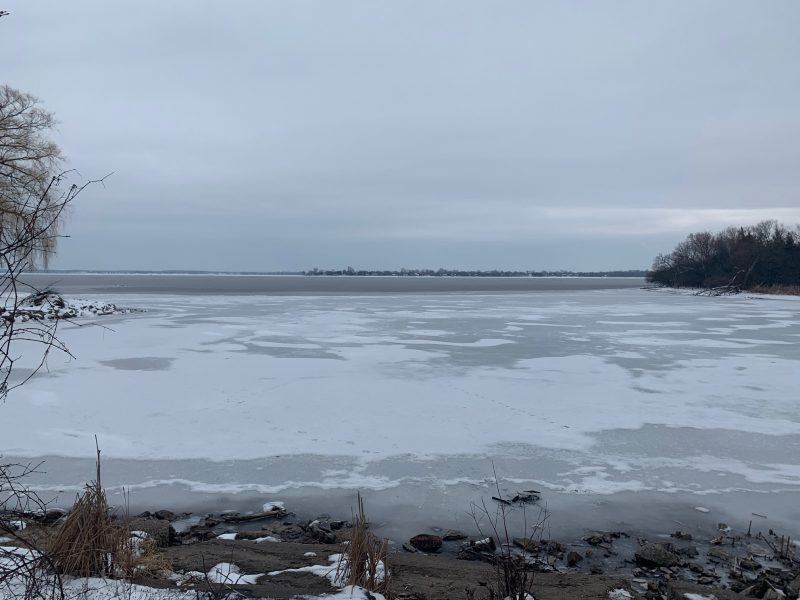Northumberland OPP reminds public of ice safety precautions

The ice has been thin near Point Anne on the Bay of Quinte. Photo by James Tubb, QNet News
By Trey Boivin
BELLEVILLE – “No Ice is Safe Ice,” Northumberland OPP warn in a news release about being cautious out on frozen bodies of water.
The warning isn’t the first one from local police services this winter.
A 23-year-old ice fisherman from Belleville died on Jan. 9 when he fell through the ice on the Bay of Quinte near Point Anne.
The release says all recreational activities come with a certain amount of risk. Activities that involve ice comes with even greater hazards.
No ice on open water should be considered completely safe and know the risks to yourself and others when going out onto frozen waters, Northumberland OPP urges.
They say that if anyone plans on venturing out onto frozen water or just happen to find themselves on the ice, they should be attentive and follow these general guidelines:
- Always check the thickness of the ice before stepping out. Ice is often thicker and safer near the shoreline than further out into open areas.
- Avoid going out onto the ice when it’s dark. It’s more difficult to see potential dangers.
- If you must venture out onto the ice, wear a thermal wetsuit to increase your chances of survival if you fall through.
- Never go out on the ice alone. Going out onto the ice with someone else increases the chance of rescue.
- Before you leave, tell someone where you’re going, what you’re doing and what time you think you’ll be returning.
- Carry rescue equipment such as ice picks, a rope, a waterproofed cell phone, first aid kit, flashlight, waterproof matches, tool kit and survival blanket
- Make sure you know how to perform a rescue safely on ice.
- Don’t drink alcohol or consume other drugs because these can impair judgement and reduce your body’s ability to stay warm in cold conditions.
- Download the what3words app on your phone. It’s a mapping system that can find someone’s location within a 3-metre square. This can help emergency services locate and rescue injured or lost people when they can’t describe or they don’t know where they are.
The press release also included links for more information on ice safety. These links are from the Red Cross and the lifeguard’s Lifesaving Society.
 Print This Post
Print This Post






